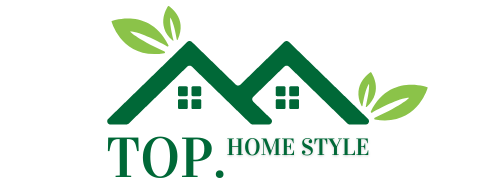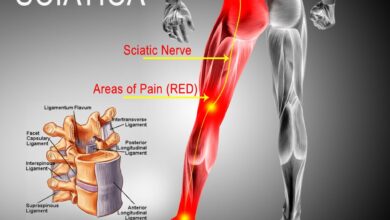
Coconut coir, also known as coco coir and coco peat, is a natural soil amendment that is made from the husks of coconuts.
It is an organic carbon source and has high levels of nutrients, including nitrogen, phosphorus, potassium, and magnesium.
Coconut coir is highly eco-friendly and a solid alternative to peat moss in potting soils; it also helps to improve water retention and drainage.
Coco peat is mainly used to improve the potting mix’s drainage system and moisture retention capacity.
The downside of using coco coir is that it contains very few nutrients that feed plants.
Therefore, we suggest you use additional amendments with coconut coir. It is a good idea to mix coco coir with sand.
Compost

Compost (as with humus, which is naturally occurring compost) is made up of organic matter that has been broken down by microorganisms.
Compost also helps to increase the available organic carbon and nutrients in the soil, while improving the soil’s ability to retain water.
As an added benefit, compost also helps to improve the overall environment in your garden, reducing landfill waste.
It is one of the best organic fertilizers applied to any soil type.
It does improve not only physical properties but also encourages the activity of microorganisms in the soil.
Compost can be made of many materials, including dead leaves, branches, animal manure, and kitchen waste.
Compost-amended soils are rich in essential nutrients and organic content, and they retain water for a longer period of time.
Kelp meal
Kelp meal is a type of organic matter that can be used in gardens to improve soil fertility and help with the growth of plants.
Kelp is a type of seaweed that grows in shallow waters and can be harvested from the ocean or lakes.
The seaweed is washed and dried before being ground into a powder.
Kelp meal is a valuable and sustainable soil amendment that contains high levels of organic matter, which helps to improve the growth of plants.
Kelp meal also contains organic matter, which helps improve the soil’s texture and provides food for beneficial microorganisms.
Kelp meal is a high-quality source of macronutrients, including nitrogen, phosphorus, and potassium.
Kelp meal can be used as a fertilizer for plant growth and contains essential nutrients such as nitrogen, phosphorus, potassium, magnesium, and calcium.
The N-P-K ratio of kelp meal is around 1-0-4. Though the concentration of NPK is lower in this fertilizer, the level of plant growth hormone is very high.
So, it would be best to use kelp along with other organic fertilizers.
Peat moss

It is another inert material like coconut coir. These materials absorb a lot of water and have a higher capacity for holding water than coco coir, but they are acidic.
It is a type of organic matter and is composed of plant cells and other organic materials.
Peat moss can improve aeration and drainage in soils, providing key nutrients to plants. It is also an excellent source of organic matter, making it an important part of a garden’s nutrient cycle.
The downside of peat moss is the harvesting of the material.
Harvesting peat moss is not considered environmentally friendly because once harvested, peat moss can take hundreds of years to form or regrow.
Worm castings

Worm castings are a type of fertilizer made from the castings (feces) of worms.
It is high in nitrogen and potassium, two of the key macronutrients that plants need in order to grow.
Worm castings also contain organic matter, which helps to improve soil fertility.
Worm casting is considered a complete fertilizer package and the best soil amendment because it contains all the macro and micronutrients.
It increases the organic content of the soil and improves the soil’s capacity to retain more moisture. You can mix it with the topsoil to improve the aeration.
Worm casting will minimize the abrupt fluctuation of soil pH and improve soil structure by flocculating the soil particles.
Inorganic soil amendments

Inorganic soil amendments include materials that are low in carbon. Some inorganic materials include gypsum, fly ash, vermiculite, and perlite.
Inorganic soil amendment refers to the use of substances that are not part of the natural soil composition in order to improve the quality or fertility of soils.
Common inorganic soil amendments include nutrients, gypsum, fly ash, and vermiculite.
Nutrients are essential for plant growth and can be supplied by adding them to the soil as a fertigation agent or as a component of organic fertilizers.
Perlite
Perlite is an inorganic material that is made of tiny pieces of volcanic glass and can be used as a source of potassium, magnesium, and other nutrients for plants.
Used as a soil amendment, perlite can improve the texture and structure of soil while reducing water uptake.
Perlite is a material mainly used for improving drainage conditions and maintaining soil pH.
Vermiculite
Vermiculite is a mineral-based insulation material that can be used as an amendment to soil because it provides good water retention and stability.
Vermiculite is a type of soil amendment that is composed of small, void-like spaces that are filled with a mixture of broken pieces of rock and other inorganic matter.
Vermiculite is a natural product that has been used in agriculture and gardening for many years and is most commonly used as a soil amendment because it increases the available space for plants to grow and allows them to better absorb nutrients.
It is extracted from the ground, exfoliated, and subjected to intense heat and pressure in order to expand; the result is a curly, worm-like appearance.
Vermiculite also helps to improve the texture and structure of soils, making them more resistant to erosion.
Ultimately, it helps the soil retain water and nutrients.
Fly Ash
Fly ash is a byproduct of the burning of coal and other fossil fuels. It is composed mostly of mineral components such as potassium, phosphorous, and sulfur.
Fly ash is used as an amendment to soil because it is high in nitrogen and phosphorous.
It can also be used as a fertilizer for plants because it has micronutrients, like zinc and magnesium, which help plants grow.
Gypsum
Gypsum is an inorganic mineral that is often used as a soil amendment. Gypsum can be found in nature as well as being produced industrially.
Gypsum has a high concentration of calcium and magnesium, which makes it an excellent macronutrient for plants.
Gypsum also helps to improve the moisture-holding capacity of the soil.
Lastly, gypsum can be used to control the pH level in the soil.
Dolomite Lime
Dolomite lime is a soil amendment that can be used in gardens to improve the quality and fertility of the soil.
Dolomite lime is made from dolomitic limestone, while gypsum is a type of mineral containing calcium sulfate that is found mostly in sedimentary rocks.
Dolomite lime (agricultural limestone) can be used to fix nitrogen in the soil, which is important for plants because it helps them uptake nutrients.
Both gypsum and dolomite lime is used to control the soil pH.
If the soil in your lawn is too acidic, you can use any one of these to increase the pH value before planting any vegetables or other plants.
It contains around 23% calcium and 17%–18% sulfur. Instead of applying it to the topsoil, you should mix these materials within the first 7 inches of soil correctly.
References
- [1] Goss, M.J.; Tubeileh, A. and Goorahoo, D. 2013. A review of the use of organic amendments and the risk to human health. Advances in Agronomy, 120, 275-379. URL: https://www.ncbi.nlm.nih.gov/pmc/articles/PMC7173535/
- [2] Maucieri, C.; Barco, A., and Borin, M. 2019. Compost as a Substitute for Mineral N Fertilization? Effects on Crops, Soil and N Leaching. Agronomy, 9(4): 193. URL: https://www.mdpi.com/2073-4395/9/4/193
- Davis, J.G. and Whiting, D. (2013). Choosing a Soil Amendments. Colorado State University Extension. URL: https://extension.colostate.edu/topic-areas/yard-garden/choosing-a-soil-amendment/
- National Good Agricultural Practices Program. (n.d.). Soil Amendments. National Good Agricultural Practices Program, College of Agricultural and Life Sciences, Cornell University. URL: https://gaps.cornell.edu/educational-materials/decision-trees/soil-amendments/
- Dinius, P. (2015). Organic Soil Amendments in Yards and Gardens: How Much is Enough? Gardening in Washington State, Puyallup Research and Extension Center, University of Washington. URL: http://gardening.wsu.edu/organic-soil-amendments-in-yards-and-gardens-how-much-is-enough/
- About/mentions: soil amendment, compost, coconut coir, perlite, vermiculite, soil, gardening




